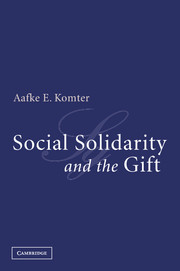1 - The Social Meaning of Things
Published online by Cambridge University Press: 24 November 2009
Summary
In any case all these things are always, and in every tribe, spiritual in origin and of a spiritual nature…. Each of these precious things … possesses … its individuality, its name, its qualities, its power.
(Marcel Mauss 1990 [1923]: 44)Things are things, and people are people. Things are mute and inert; people speak and act with each other and are involved in the construction of shared meanings. This way of conceiving the distinction between people and things, common in Western society, is often contrasted with the views of non-Western societies, where things are supposed to possess a life of their own (Appadurai 1986). In some tribal societies described by Marcel Mauss in his classical Essai sur le don (1990 [1923]), things were considered as animated, or having a spirit (hau), communicating messages from the person originally in possession of the thing to its recipient. The spirit of the thing would not come to rest until it was returned to the place where its giver was born.
The opposition between Western and non-Western conceptions of things is clearly too simplistic. Many people will recognize that things may have a personal, often highly idiosyncratic meaning to them. For example, it is impossible for some people to throw anything away: for them the things with which they have surrounded themselves represent inalienable and highly cherished memories. We may also think of lovers who endow each other with little shells or stones found on the beach, symbolizing their affection.
- Type
- Chapter
- Information
- Social Solidarity and the Gift , pp. 15 - 33Publisher: Cambridge University PressPrint publication year: 2004



